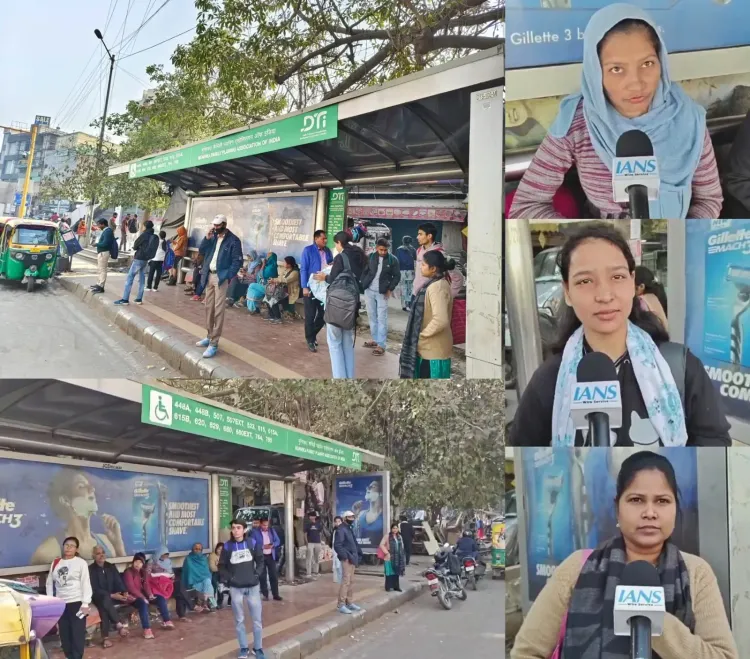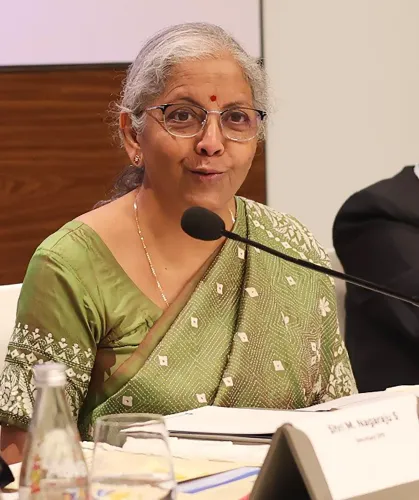A Decade Since Nirbhaya: Women's Safety Concerns Persist in Delhi

New Delhi, Dec 16 (NationPress) In December 2012, the brutal gang-rape of a young woman, later referred to as Nirbhaya by the media, sent shockwaves through India and ignited widespread protests for justice and systemic reform. A decade later, the unsettling question remains: Has anything significantly changed regarding the safety of women in the nation and particularly in Delhi?
IANS visited Munirka, a locality in Delhi, on Monday to speak with several women about their safety concerns. The responses were disturbingly consistent.
Nitu reflected on the lack of progress, stating, “I don’t believe things have improved for women. Even after 12 years of Nirbhaya, we continue to experience the same fears. I don’t feel secure in the evening anymore. The government must take appropriate measures to tackle this.”
Arpita, another local resident, expressed similar concerns, “Even after 12 years, nothing has changed. Women remain unsafe on the roads and at bus stops. We live in perpetual fear. Parents worry when their daughters are out, and it’s not just us — it’s a nationwide issue. Women in schools, hospitals, and even nurses feel threatened. This has become a daily crisis, and the government needs to enforce stricter measures.”
Kalindi shared her own experiences with traveling alone, especially at night.
“After the Nirbhaya incident, nothing has changed for women. I fear traveling alone, particularly on buses. We can’t help but worry that we might be the next victim. The government should guarantee safety not just in buses, but on all roads.”
The horrific gang-rape and eventual death of Nirbhaya in a moving bus in December 2012 shocked the nation. The brutal attack left the young woman fighting for her life until her passing on December 29, which spurred nationwide protests and led to significant legal reforms aimed at protecting women.
However, the grim reality is that after more than a decade, Delhi remains a perilous place for women. As of August 31, 2023, the city had recorded 2,751 crimes against women, including 1,393 rapes, 1,354 sexual assaults, and three instances of rape followed by murder. These statistics illustrate a city still grappling with the safety of its female citizens. Since 2022, Delhi has averaged five rapes per day, with a staggering 11 crimes against women occurring daily.
Despite various government initiatives such as the establishment of the Women Safety Division in May 2018, the creation of the Nirbhaya Fund, and the launch of systems like the Investigation Tracking System for Sexual Offences (ITSSO) and the Emergency Response Support System, these measures have not sufficiently curbed the daily violence against women.
One recent tragedy in the country evoked memories of the Nirbhaya case: The brutal rape and murder of a female doctor in Kolkata during her shift at a medical college. This appalling incident reignited public outrage and highlighted the ongoing risks women face throughout the country.
In response to public outcry, several states have established fast-track courts for sexual crime cases, one-stop centers for survivors, and specialized legal aid and rehabilitation services.
In Delhi, special fast-track courts have been set up to expedite the trial of rape cases, and the city has introduced the Zero FIR system, allowing victims to file an FIR at any police station regardless of jurisdiction.
The Delhi Commission for Women continues to advocate for better enforcement of laws designed to protect women.
On Monday, the ruling Aam Aadmi Party (AAP) in Delhi launched a new initiative called Mahila Adalat, highlighting the ongoing issue of violence against women in the national capital. The campaign seeks to hold the Union government accountable and amplify the voices of women still battling for justice and safety.
As Delhi marks a decade of Nirbhaya’s legacy, the question remains: Have lessons been learned, or has the struggle for women’s safety just begun?










